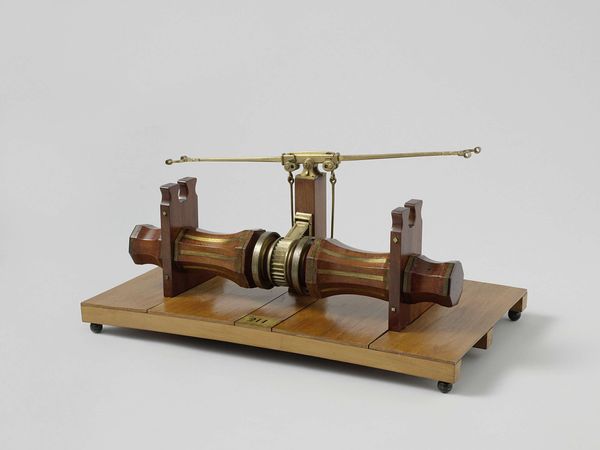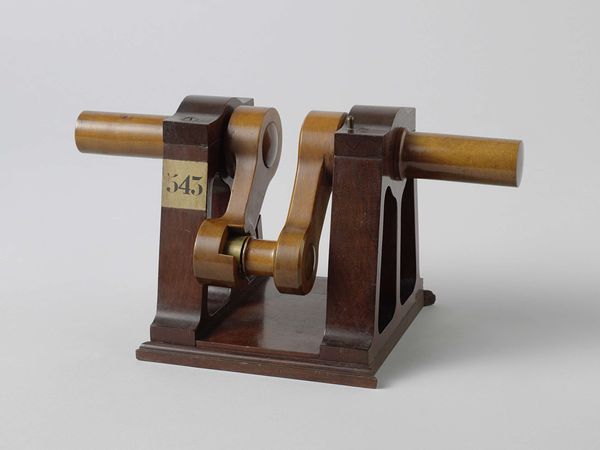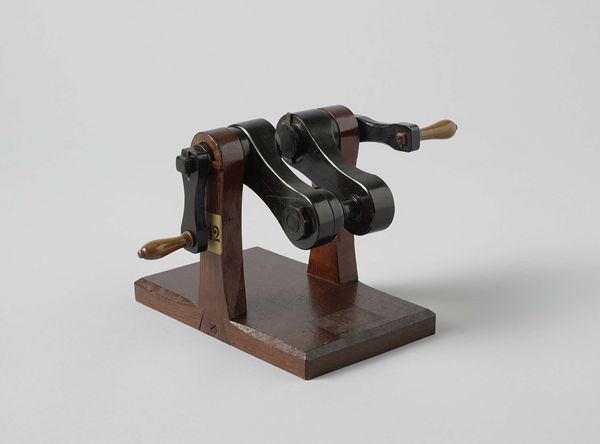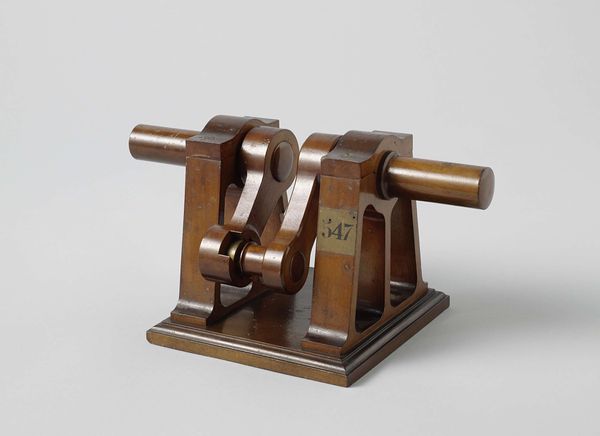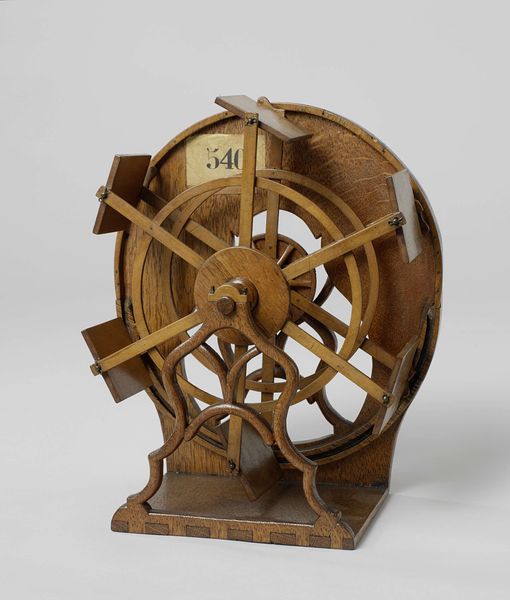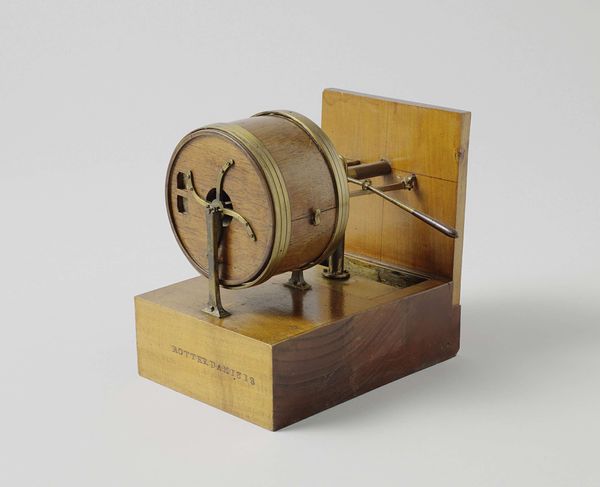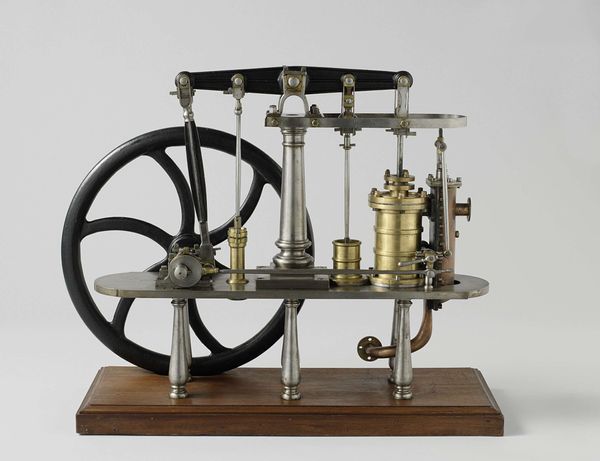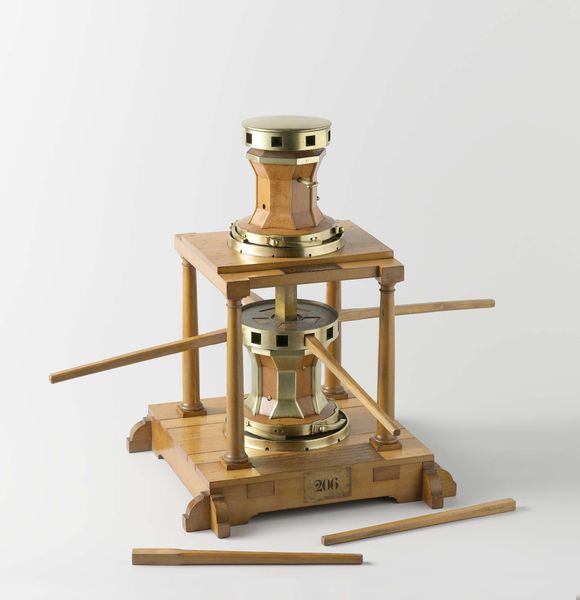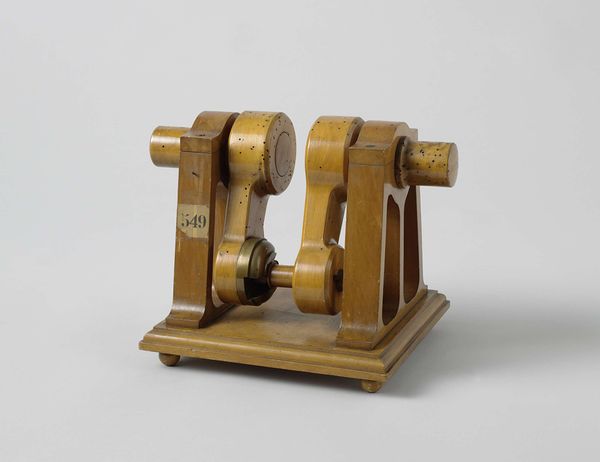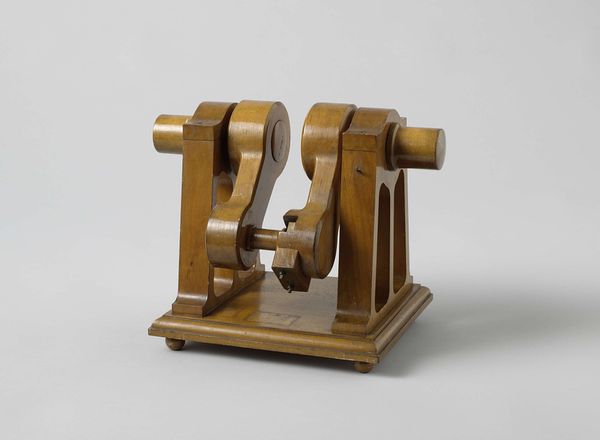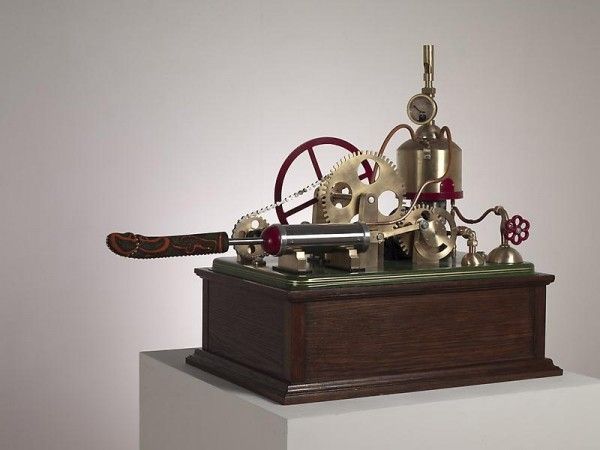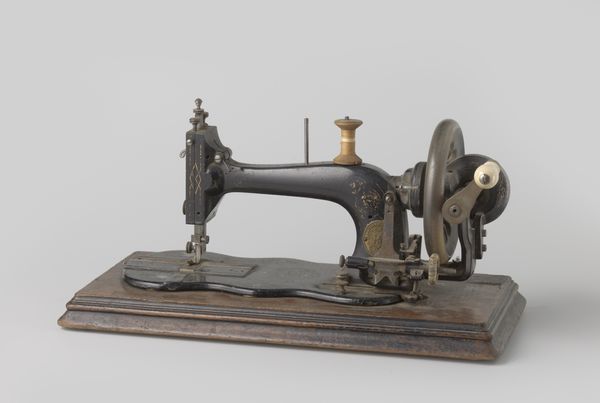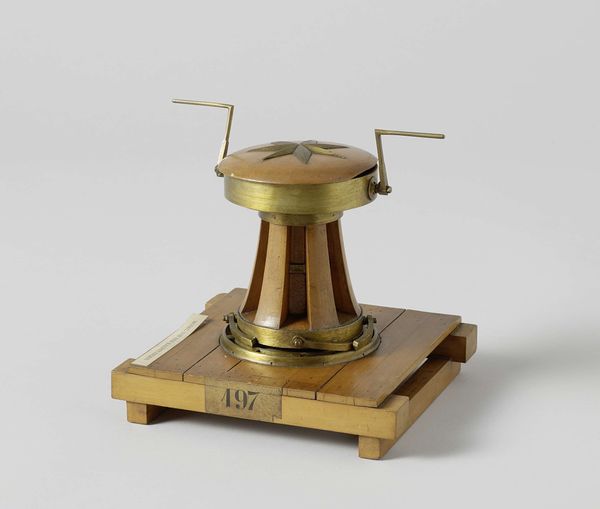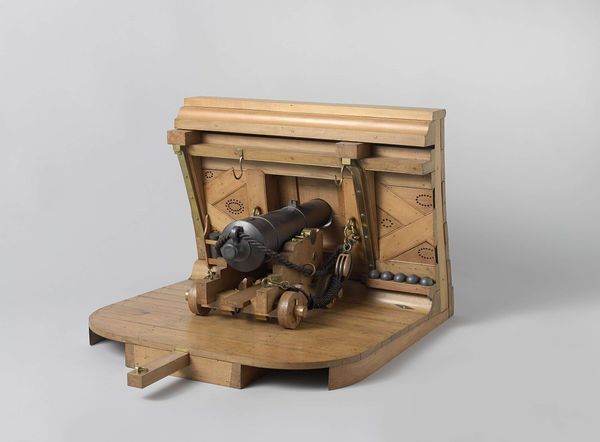
#
3d sculpting
#
3d printed part
#
sculpture
#
virtual 3d design
#
architecture mock-up
#
unrealistic statue
#
3d shape
#
prop product design
#
framed image
#
statue
Dimensions: height 31.8 cm, width 43.2 cm, depth 29.9 cm
Copyright: Rijks Museum: Open Domain
Editor: This is the "Model of a Pump Windlass," dating back to about 1852. It's quite fascinating – almost like a miniature industrial sculpture. I'm curious, how do you interpret this work within its historical context? Curator: It’s tempting to simply admire the craftsmanship, but it’s crucial to consider this model in the socio-economic landscape of the mid-19th century. Windlasses, powered by human or animal exertion, enabled industrial productivity, but the exploitation of that labor must also be taken into account. To truly understand it, shouldn’t we ask *who* was benefitting from that productivity, and at what cost? Editor: That's a perspective I hadn't considered! It shifts my understanding of it from a purely technical object to something representing social power dynamics. How does that play out, visually? Curator: Notice the contrast in materials: robust wood for the supports, more refined brass and polished elements for the operational mechanics. Doesn't that symbolize a stratification between natural resources, skilled labor, and…the system, which profits the most from them? This "machine" becomes a potent symbol of a burgeoning industrial revolution with the means of production held firmly in a few hands. It may be an idealized depiction, but it reminds us of inequality. Editor: That's powerful. So, appreciating the beauty of this model means confronting uncomfortable realities about labor and class? Curator: Precisely. Acknowledging those power structures allows us to engage more deeply, honestly with history and how it shapes our world today. Editor: I will never look at engineering models the same way! Thanks! Curator: And thank you! That’s precisely why we have these conversations—to learn from each other and unearth those latent historical forces.
Comments
No comments
Be the first to comment and join the conversation on the ultimate creative platform.
